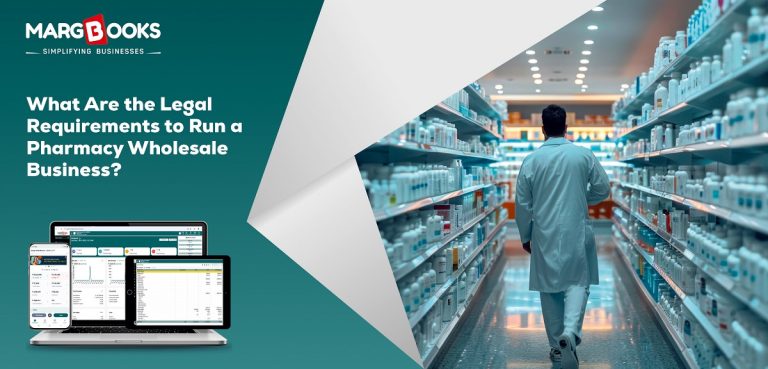Starting a pharmacy wholesale business in India can be a lucrative venture, especially with the growing demand for medicines and medical supplies. However, it comes with a significant amount of legal responsibilities. Whether you’re thinking of running a brick-and-mortar store or an online pharmacy, ensuring that your business is legally compliant is crucial. In this blog post, we’ll walk you through the various legal requirements and regulatory guidelines you must adhere to when running a pharmacy wholesale business in India.
1. Understanding the Pharmacy Wholesale Business
A pharmacy wholesale business deals with the distribution of pharmaceutical products, including medicines, medical devices, and health-related items, to retailers, hospitals, clinics, and sometimes directly to consumers. This sector plays a critical role in the supply chain, ensuring that the right products reach the right destinations on time.
2. Licensing and Registration
The first and most important legal requirement for running a pharmacy wholesale business is obtaining the necessary licenses and registrations. These licenses are issued by the Drugs Control Department under the respective State Government in India.
a. Wholesale Drug License
To operate a pharmacy wholesale business, you must obtain a Wholesale Drug License from the Drugs Controller General of India (DCGI). This license is issued under the provisions of the Drugs and Cosmetics Act, 1940, and the Drugs and Cosmetics Rules, 1945. The following steps are involved in obtaining this license:
- Apply to the State Drug Licensing Authority.
- Ensure your premises meet the specific requirements laid down by the regulatory authorities (for instance, clean, properly ventilated, and secure).
- Appoint a qualified pharmacist as per the Pharmacy Act, 1948.
- Provide details regarding the storage, distribution, and handling of drugs.
b. GST Registration
In India, any business with an annual turnover exceeding ₹40 lakhs (₹20 lakhs for special category states) must register for Goods and Services Tax (GST). As a pharmacy wholesale business, you will need to ensure that you are complying with GST regulations. GST registration is mandatory for all drug wholesalers, and you’ll need to apply through the GST portal.
3. Compliance with the Drugs and Cosmetics Act
The Drugs and Cosmetics Act, 1940 governs the manufacture, sale, and distribution of pharmaceutical products in India. As a wholesale distributor, you must comply with the following:
- Drug Storage Conditions: Drugs must be stored according to the manufacturer’s instructions. Controlled drugs, for example, require more stringent storage conditions.
- Expiry Dates: Expired drugs must not be sold, and it is your responsibility to ensure that drugs sold are within their expiry period.
- Record Keeping: Maintain proper records of all transactions, including purchase and sale of drugs, as required under the Act.
4. Prescription Verification and Controlled Drugs
Certain drugs, especially narcotics and psychotropic substances, are classified as controlled drugs. It is crucial to verify prescriptions when distributing these drugs to prevent misuse and ensure that they are supplied only under legal and regulated conditions.
- Prescription Records: For controlled substances, you must keep detailed records of the drugs sold, along with the prescriber’s details.
- Stock Audit: Regular audits of controlled substances are required to ensure compliance with government regulations.
5. Hiring Qualified Staff
You must hire qualified professionals to operate the pharmacy wholesale business. The most essential role is the licensed pharmacist. The pharmacist must be registered under the Pharmacy Council of India and have a degree in pharmacy from an accredited institution.
Additionally, you will need to have support staff who are well-versed with inventory management, billing, and ensuring that drugs are stored and handled correctly.
6. Software for Managing Sales and Inventory
In the digital age, it’s not enough to keep track of inventory and sales manually. Investing in online pharma billing software or medical store billing software can help streamline your operations and ensure compliance with legal requirements.
a. Online Pharma Billing Software
This software is essential for maintaining accurate records of all sales transactions. It helps you:
- Track sales in real-time
- Generate invoices automatically
- Maintain a database of all the drugs in your inventory
- Comply with tax requirements by integrating with GST filing systems
With the help of such software, you can ensure accurate billing, streamline the billing process, and reduce human error.
b. Medical Store Billing Software
Medical store billing software works similarly but is designed specifically for pharmacies. This type of software also offers unique features like:
- Stock-level alerts when inventory is low
- Integration with barcode scanners for efficient tracking
- Reports on inventory, sales, and profits
- Compliance with regulatory standards and local tax laws
By using medical store billing software, you can automate various aspects of your business, making it easier to comply with the requirements laid out by the government.
7. Insurance and Liability
Your pharmacy wholesale business should have adequate insurance coverage to protect against potential liabilities. This could include:
- Product Liability Insurance: In case there’s a faulty product or a customer suffers harm due to a drug you’ve sold, this type of insurance can cover the cost of legal fees and compensation.
- Property Insurance: To protect your premises, equipment, and stock from potential damage, theft, or natural disasters.
8. Regular Inspections and Audits
The Drugs Control Department may conduct periodic inspections and audits to ensure that the wholesale business complies with legal standards. These inspections may check:
- Storage conditions
- Record-keeping practices
- Staff qualifications
- Compliance with drug labeling regulations
To avoid penalties or suspension of your license, it is vital to maintain consistent records and ensure your premises meet all standards.
9. Margbooks and Financial Compliance
A proper accounting system is essential for the smooth functioning of any business, and it’s no different for a pharmacy wholesale business. The use of platforms like Margbooks can help you maintain accurate financial records, track your income and expenses, and ensure compliance with tax regulations.
Margbooks is an excellent tool for managing your finances and offers features like:
- GST compliance for easy tax filing
- Inventory management for better stock tracking
- Financial reporting to help with audits
Using software like Margbooks can reduce the risk of human error and simplify the management of your business.
Conclusion
Running a pharmacy wholesale business requires adherence to a range of legal requirements to ensure that you’re not only complying with the law but also protecting the health of the people who rely on the medicines you distribute. From obtaining the proper licenses to maintaining up-to-date software for billing and inventory management, the legal landscape can be complex. However, with careful attention to these requirements and the right tools, such as online pharma billing software and medical store billing software, you can ensure that your business runs smoothly and legally.




